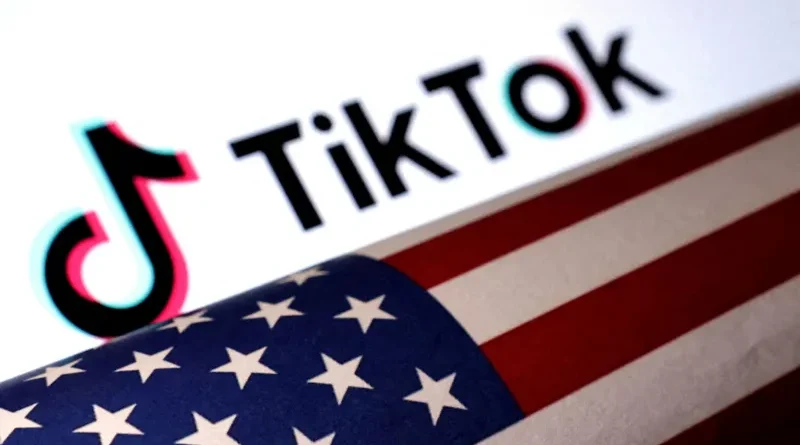TikTok is poised for a ban in the US following an unsuccessful appeal.
TikTok’s attempt to reverse a law that could result in its ban or forced sale in the US starting early 2025 has been denied.
The social media firm had anticipated that the federal appeals court would concur with its stance that the statute was unconstitutional, arguing that it had a “staggering” effect on the free speech rights of its 170 million users in the United States.
The court sustained the law, stating it “represented the culmination of extensive, bipartisan efforts by Congress and successive administrations.”
TikTok has announced its intention to escalate its legal battle to the US Supreme Court, the nation’s ultimate judicial body.
The US is pushing for the sale or ban of TikTok due to alleged connections between its owners and the Chinese government—claims that TikTok and its parent company, ByteDance, have consistently denied.
The court concurred that the legislation was “meticulously designed to address control by a foreign adversary and was part of a comprehensive strategy to counteract a thoroughly substantiated national security threat from the PRC (People’s Republic of China).”
But TikTok said it was not the end of its legal fight.
“The Supreme Court holds a historical record of safeguarding Americans’ right to free speech, and we anticipate that they will continue to do so regarding this significant constitutional matter,” stated a spokesperson for TikTok.
They stated that the law was founded on “inaccurate, flawed, and hypothetical information,” and that a ban would amount to censoring US citizens.
Donald Trump’s win in the 2024 US Presidential Election could also offer a lifeline to the application.
Despite his unsuccessful attempt to ban TikTok in his first term in 2020, he stated during the run-up to the November elections that he would not permit the TikTok ban to be enforced.
Donald Trump is scheduled to be inaugurated on January 20, which is the deadline for TikTok to be sold or face a ban according to the law.
However, it remains to be seen whether he will follow through on his pre-election vow.
Professor James Grimmelmann of Cornell University remarked that the president-elect would face significant challenges in attempting to grant TikTok a reprieve.
“The anti-China sentiment in the US Congress is quite pronounced, leading to significant factions within both parties advocating for TikTok’s restriction from the US market,” he informed BBC News.
Users and rivals
The court case has been closely watched both by those who use TikTok- and the app’s rivals.
Tiffany Cianci, a small business advocate and TikTok creator, said she was “not shocked” by Friday’s decision – buttold BBC News she would not be shifting her TikTok content or presence to the platform’s rivals, such as Instagram.
“I’m not going to do what they want and take my content to their platforms where it’s not as successful where it’s more likely to be censored, where I am more likely to have less control over my audience,” she said.
Nonetheless, other platforms are positioning themselves for a post-TikTok social media landscape.
Meta, which owns Facebook as well as Instagram, WhatsApp and Threads, has sought to build rivals to TikTok’s short form videos within its own apps, and made changes that users have likened to TikTok amid questions over the app’s US future.
Jasmine Enberg, principal analyst at eMarketer, said there would be “major upheaval” if a TikTok appeal were to fail at the Supreme Court and a ban was enforced.
She said this would be “benefitting Meta, YouTube and Snap, while hurting content creators and small businesses that rely on the app to make a living.”
But TikTok won’t be easily recreated, said Cory Johnson, Chief Market Strategist at Epistrophy Capital Research. Johnson said deep learning models power TikTok’s recommendation engine.
“Enabling such complex AI and big data processing at TikTok’s immense scale requires a colossal and expensive technical infrastructure,” Johnson said.
He said TikTok’s hyper-targeting and China’s data laws pose significant risks, and pointed to Elon Musk’s alterations to algorithms at his social media platform X, formerly known as Twitter, as a cautionary tale.
In the run-up to the U.S. election, Musk’s political posts received more views than all U.S. political campaign ads on X’s disclosure dataset, Johnson said.
“We have very real and very recent experience in America with a social media network tweaking its algorithms to favor certain voices,” he added.

